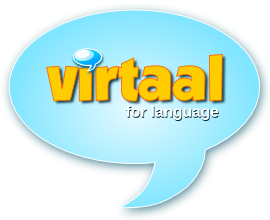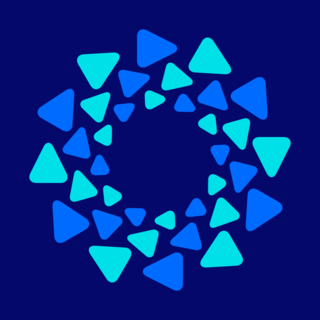Related Research Articles
BitKeeper is a discontinued software tool for distributed revision control of computer source code. Originally developed as proprietary software by BitMover Inc., a privately held company based in Los Gatos, California, it was released as open-source software under the Apache-2.0 license on 9 May 2016. BitKeeper is no longer being developed.

Open-source software (OSS) is computer software that is released under a license in which the copyright holder grants users the rights to use, study, change, and distribute the software and its source code to anyone and for any purpose. Open-source software may be developed in a collaborative, public manner. Open-source software is a prominent example of open collaboration, meaning any capable user is able to participate online in development, making the number of possible contributors indefinite. The ability to examine the code facilitates public trust in the software.
In software engineering, a project fork happens when developers take a copy of source code from one software package and start independent development on it, creating a distinct and separate piece of software. The term often implies not merely a development branch, but also a split in the developer community; as such, it is a form of schism. Grounds for forking are varying user preferences and stagnated or discontinued development of the original software.

OpenSSL is a software library for applications that provide secure communications over computer networks against eavesdropping, and identify the party at the other end. It is widely used by Internet servers, including the majority of HTTPS websites.

Git is a distributed version control system that tracks versions of files. It is often used to control source code by programmers who are developing software collaboratively.
Poedit is a shareware and cross-platform gettext catalog editor to aid in the process of language localisation. According to WordPress developer Thord Hedengren, Poedit is "one of the most popular programs" for editing portable language files.
In software development, distributed version control is a form of version control in which the complete codebase, including its full history, is mirrored on every developer's computer. Compared to centralized version control, this enables automatic management branching and merging, speeds up most operations, improves the ability to work offline, and does not rely on a single location for backups. Git, the world's most popular version control system, is a distributed version control system.

GForge is a commercial service originally based on the Alexandria software behind SourceForge, a web-based project management and collaboration system which was licensed under the GPL. Open source versions of the GForge code were released from 2002 to 2009, at which point the company behind GForge focused on their proprietary service offering which provides project hosting, version control, code reviews, ticketing, release management, continuous integration and messaging. The FusionForge project emerged in 2009 to pull together open-source development efforts from the variety of software forks which had sprung up.

Mercurial is a distributed revision control tool for software developers. It is supported on Microsoft Windows, Linux, and other Unix-like systems, such as FreeBSD and macOS.

The history of free and open-source software begins at the advent of computer software in the early half of the 20th century. In the 1950s and 1960s, computer operating software and compilers were delivered as a part of hardware purchases without separate fees. At the time, source code—the human-readable form of software—was generally distributed with the software, providing the ability to fix bugs or add new functions. Universities were early adopters of computing technology. Many of the modifications developed by universities were openly shared, in keeping with the academic principles of sharing knowledge, and organizations sprung up to facilitate sharing.

GitHub is a developer platform that allows developers to create, store, manage, and share their code. It uses Git software, which provides distributed version control of access control, bug tracking, software feature requests, task management, continuous integration, and wikis for every project. Headquartered in California, it has been a subsidiary of Microsoft since 2018.

Virtaal is a computer-assisted translation tool written in the Python programming language. It is free software developed and maintained by Translate.org.za.
The open-source software movement is a social movement that supports the use of open-source licenses for some or all software, as part of the broader notion of open collaboration. The open-source movement was started to spread the concept/idea of open-source software.
translatewiki.net, formerly named Betawiki, is a web-based translation platform powered by the Translate extension for MediaWiki. It can be used to translate various kinds of texts but is commonly used for creating localisations for software interfaces.

mpv is free and open-source media player software based on MPlayer, mplayer2 and FFmpeg. It runs on several operating systems, including Unix-like operating systems and Microsoft Windows, along with having an Android port called mpv-android. It is cross-platform, running on ARM, MIPS, PowerPC, RISC-V, s390x, x86/IA-32, x86-64, and some other by 3rd party.
Visual Studio Code, commonly referred to as VS Code, is an integrated development environment developed by Microsoft for Windows, Linux, macOS and web browsers. Features include support for debugging, syntax highlighting, intelligent code completion, snippets, code refactoring, and embedded version control with Git. Users can change the theme, keyboard shortcuts, preferences, and install extensions that add functionality.

Coraline Ada Ehmke is an American software developer, open source advocate, and Founder and Executive Director of the Organization for Ethical Source, based in Chicago, Illinois. She began her career as a web developer in 1994 and has worked in a variety of industries, including engineering, consulting, education, advertising, healthcare, and software development infrastructure. She is known for her work in Ruby, and in 2016 earned the Ruby Hero award at RailsConf, a conference for Ruby on Rails developers. She is also known for her social justice work and activism, writing the Contributor Covenant and Post-Meritocracy Manifesto, and promoting the widespread adoption of codes of conduct for open source projects and communities.
The Contributor Covenant is a code of conduct for contributors to free/open source software projects, created by Coraline Ada Ehmke. Its stated purpose is to reduce harassment of minority, LGBT and otherwise underrepresented open source software developers.
Microsoft, a tech company historically known for its opposition to the open source software paradigm, turned to embrace the approach in the 2010s. From the 1970s through 2000s under CEOs Bill Gates and Steve Ballmer, Microsoft viewed the community creation and sharing of communal code, later to be known as free and open source software, as a threat to its business, and both executives spoke negatively against it. In the 2010s, as the industry turned towards cloud, embedded, and mobile computing—technologies powered by open source advances—CEO Satya Nadella led Microsoft towards open source adoption although Microsoft's traditional Windows business continued to grow throughout this period generating revenues of 26.8 billion in the third quarter of 2018, while Microsoft's Azure cloud revenues nearly doubled.

Fyne is a free and open-source cross-platform widget toolkit for creating graphical user interfaces (GUIs) across desktop and mobile platforms. It is designed to enable developers to build applications that run on multiple desktop and mobile platforms/versions from a single code base. Fyne uses OpenGL to provide cross-platform graphics. It is inspired by the principles of Material Design to create applications that look and behave consistently across all platforms. It is licensed under the terms of the 3-clause BSD License, supporting the creation of free and proprietary applications. In December 2019 Fyne became the most popular GUI toolkit for Go, by GitHub star count and in early February 2020 it was trending as #1 project in GitHub trending ranks.
References
- ↑ Daniel, Sherae; Agarwal, Ritu; Stewart, Katherine J. (2013). "The Effects of Diversity in Global, Distributed Collectives: A Study of Open Source Project Success". Information Systems Research. 24 (2): 312–333. doi:10.1287/isre.1120.0435. ISSN 1047-7047. JSTOR 42004307.
- 1 2 von Krogh, Georg; von Hippel, Eric (2003-07-01). "Special issue on open source software development". Research Policy. 32 (7): 1149–1157. doi:10.1016/S0048-7333(03)00054-4. ISSN 0048-7333.
- ↑ Kuechler, Victor; Gilbertson, Claire; Jensen, Carlos (2012). "Gender Differences in Early Free and Open Source Software Joining Process". In Hammouda, Imed; Lundell, Björn; Mikkonen, Tommi; Scacchi, Walt (eds.). Open Source Systems: Long-Term Sustainability. IFIP Advances in Information and Communication Technology. Vol. 378. Berlin, Heidelberg: Springer. pp. 78–93. doi:10.1007/978-3-642-33442-9_6. ISBN 978-3-642-33442-9.
- 1 2 3 4 5 "Open Source Survey". Open Source Survey. Retrieved 2024-12-08.
- ↑ Terrell, Josh; Kofink, Andrew; Middleton, Justin; Rainear, Clarissa; Murphy-Hill, Emerson; Parnin, Chris; Stallings, Jon (2017-05-01). "Gender differences and bias in open source: pull request acceptance of women versus men". PeerJ Computer Science. 3: e111. doi: 10.7717/peerj-cs.111 . ISSN 2376-5992. S2CID 215729690.
- ↑ Robles, Gregorio; Reina, Laura Arjona; González-Barahona, Jesús M.; Domínguez, Santiago Dueñas (2016). "Women in Free/Libre/Open Source Software: The Situation in the 2010s". In Crowston, Kevin; Hammouda, Imed; Lundell, Björn; Robles, Gregorio; Gamalielsson, Jonas; Lindman, Juho (eds.). Open Source Systems: Integrating Communities. IFIP Advances in Information and Communication Technology. Vol. 472. Cham: Springer International Publishing. pp. 163–173. doi:10.1007/978-3-319-39225-7_13. ISBN 978-3-319-39225-7.
- ↑ Ghosh, Rishab Aiyer; Glott, Ruediger; Krieger, Bernhard; Robles, Gregorio (June 2002). "Free/Libre and Open Source Software: Survey and Study" (PDF). International Institute of Infonomics University of Maastricht, The Netherlands.
- ↑ Robles, Gregorio; Arjona, Laura; Serebrenik, Alexander; Vasilescu, Bogdan; González-Barahona, Jesús M. (2014). "FLOSS 2013: A Survey Dataset about Free Software Contributors: Challenges for Curating, Sharing, and Combining" (PDF). Proceedings of the 11th Working Conference on Mining Software Repositories - MSR 2014. Mining Software Repositories Conference. Association for Computing Machinery (ACM). pp. 396–399. doi:10.1145/2597073.2597129. ISBN 9781450328630.
- ↑ Robles, Gregorio; Arjona, Laura; González-Barahona, Jesús M.; Dueñas Domínguez, Santiago (2016). "Women in Free/Libre/Open Source Software: The situation in the 2010s". Open Source Systems: Integrating Communities. IFIP International Conference on Open Source Systems. IFIP Advances in Information and Communication Technology. Vol. 472. Springer. pp. 163–173. doi: 10.1007/978-3-319-39225-7_13 . ISBN 978-3-319-39224-0.
- 1 2 "2017 Annual Averages ‐ Employed persons by detailed occupation, sex, race, and Hispanic or Latino ethnicity". Bureau of Labor Statistics. Retrieved 2024-12-08.
- 1 2 3 Finley, Klint. "Diversity in Open Source Is Even Worse Than in Tech Overall". Wired. ISSN 1059-1028 . Retrieved 2024-12-08.
- ↑ Demby, Gene (2013-12-05). "Why Isn't Open Source A Gateway For Coders Of Color?". NPR . Retrieved 2020-10-03.
- ↑ Gates, Gary J. (2017-01-11). "In U.S., More Adults Identifying as LGBT". Gallup.com. Retrieved 2024-12-08.
- ↑ "Stack Overflow Developer Survey 2018". Stack Overflow. Retrieved 2024-12-08.
- ↑ Kraut, Robert E.; Resnick, Paul (2012-03-23). Building Successful Online Communities: Evidence-Based Social Design. MIT Press. ISBN 978-0-262-29739-4.
- ↑ "She-geeks confess love for Linux". ZDNET. Retrieved 2024-12-08.
- ↑ Singh, Vandana; Brandon, William (2019). Bordeleau, Francis; Sillitti, Alberto; Meirelles, Paulo; Lenarduzzi, Valentina (eds.). "Open Source Software Community Inclusion Initiatives to Support Women Participation". Open Source Systems. Cham: Springer International Publishing: 68–79. doi:10.1007/978-3-030-20883-7_7. ISBN 978-3-030-20883-7.